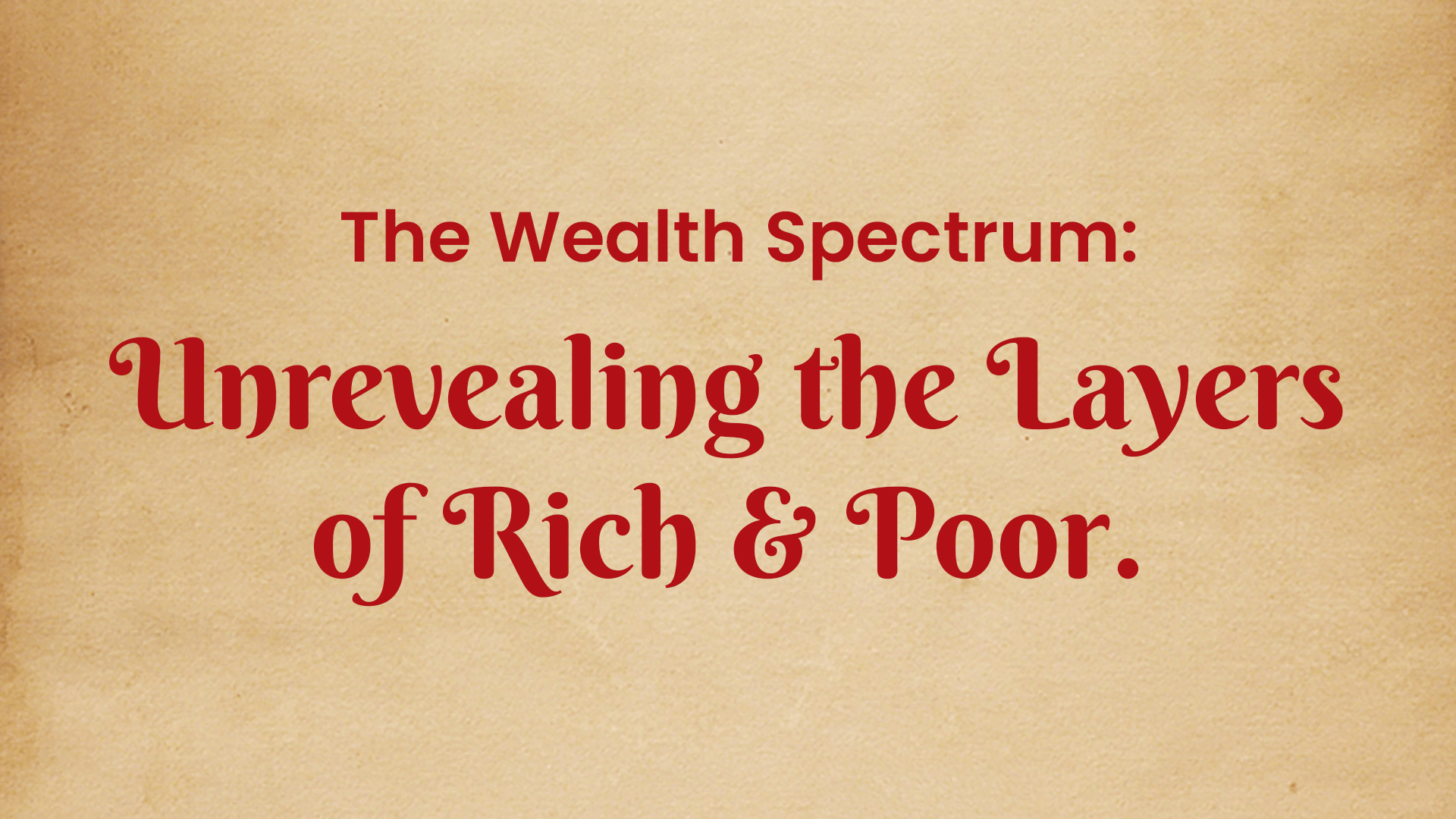In the realm of ongoing discussion lies a perennial debate: who truly embodies richness? Is it the individual adorned with great wealth and influence, or perhaps the one adorned with boundless knowledge? In our collective consciousness, we often default to associating richness with monetary affluence or material abundance. Yet, is this truth etched in stone?
Can we consider those in possession of vast fortunes as the epitome of true wealth? Or should we bestow this honor upon those who possess the power of knowledge? Who, then, are the truly rich, and who are the lamentably poor? In our pursuit of answers, we find solace in ancient tales that unravel life’s mystical secrets, carrying us beyond the confines of time.
Deep within the sacred verses of the Vayu Purana, one such story beckons us to discover the genuine essence of wealth. In the vicinity of Somnath, Gujarat, there lay a realm where the noble King Somdev held sway. His noble disposition was founded upon the belief that his own contentment could never truly be achieved if even a single soul within his dominion hungered. With this unwavering conviction, he employed spies throughout his entire realm, entrusted with the task of tending to the needs and welfare of those who lacked sustenance or were unable to procure an ample meal.
As the king’s benevolence shone brightly, his renown swelled with each passing day. Such was the extent of his fame that kings and commoners from distant realms began to disseminate a shared sentiment: poverty had been entirely banished from King Somdev’s glorious kingdom.
After the passage of several days, one of the king’s spies approached him with critical information. “Your Majesty,” the spy spoke earnestly, “after extensive analysis and a tireless search, I have discovered a sanyasi couple dwelling in a modest abode known as Parana Kutir, nestled within a forest adjacent to our realm. Their possession comprises only meager belongings – a palm leaf, a diya for illumination, modest writing materials, one or two garments, and a deer’s skin. Their meager sustenance, relied upon for sustenance, consists solely of foraged grains and seeds, painstakingly cooked on their meager hearth. Alas, there exist no formal provisions for their nourishment. Therefore, I beseech you, Your Majesty, to extend your invaluable assistance from the vast resources at our disposal.”
Upon hearing the report, the king’s compassionate heart stirred immediately. Without hesitation, he issued a swift command to his faithful servants, instructing them to ensure the provision of sustenance and refreshment for the sanyasi couple. Diligently, the royal attendants embarked upon their task, journeying towards the forest where the couple sought solace.
After reaching there, the servants bowed down and told them, “We are sent by the king to provide you with food as the king has a vow of providing eatable items for those who require the food. So, we want you to accept these food items.” When the servants reached there, the sanyasi was writing something and therefore, he didn’t even look at the servants while the servant was talking to them. Even the wife of the sanyasi was indulged in some work and she also didn’t look at the servants. Without looking at the servants and continuing his writing, the sanyasi told the servants to thank the king and give the food to someone poor. Hearing the words of a sanyasi, the servants returned to the kingdom as they had nothing more to say.
After returning from the hut of the sanyasi couple, one of the royal servants told the king the entire incident that took place at the sanyasi’s hut. The king was surprised and looked to his minister for some advice. His minister told him that the sage might be someone very learned and respected and therefore, he might have not accepted the food from the hands of servants. The minister also advised the king that he should go himself to provide the sage and his wife with food items.
The king agreed to the minister’s advice and went to the sage’s hut the next morning. The king took not only the essentials but also the luxurious items for the sanyasi couple. He reached there and bowed down to the sage and told him, “I am the king of this palace in which you have built your hut and it is my vow to provide anyone with the eatable items who require food.” Even after hearing that, the sanyasi remained engaged in his work of writing and neither he looked at the king nor his wife looked at the king. Continuing his writing, the sage said to the king, “Thank you for coming but kindly give these food items to some poor person.”
Hearing the sage’s words, the king got furious. And in his anger, he told the sage, “Kindly forgive me but there is no one poor in my entire kingdom except for you. And looking at your attitude, I think that you want to remain poor your entire life. If it’s your wish to remain poor, then stay like this your entire life. It’s my mistake that I came to help you but I think that poverty lies in your destiny.”
Although in the rage of his anger, the king said some inappropriate words to the sage, he became restless the entire day as he was very noble. Throughout the day, he neither ate anything nor had anything to drink. He was even not in the mood to talk to anyone or do any kind of work. So, at night when he went to his room, his wife asked him what happened and why he was tensed and restless. The king told his wife the entire incident that took place in the morning.
Hearing about the incident, the queen said to the king, “You have done very wrong. The one whom you thought to be poor is none other than Maharishi Kanad. He is a well-known sage and his name is Kanad because he has devoted his whole life to reading and studying. He is the one who has composed the Vaisheshik Granth and established the Vaisheshik Sampradaya. He eats the seeds and grains by collecting them in his way and cooking them because he doesn’t want to spend more of his time thinking about food. He is so inclined towards reading and studying that he wants to spend most of his time writing. And you have said such indecent words to someone great like Maharishi Kanad. It’s his dignity and nobility that he didn’t give you any curse and it’s my advice that you should immediately go there and apologize to Maharishi Kanad.”
The king understood and without wasting any time, he went to the sage’s hut to ask for an apology even though it was night. He reached there and asked the sage for an apology and told him, “I had misunderstood you as someone poor due to the condition of your living and I wasn’t aware that you are Maharishi Kanad. And as it’s my vow to provide food and help for anyone poor in my kingdom, I came to your place to provide food.” Hearing the king’s words, the sage started laughing. Seeing the sage laughing, the king asked him the reason behind his laughter. The sage replied, “Dear King, I have been living in your kingdom for ages, and yet I haven’t come to your place asking for anything till today. But today, in the middle of the night, you have come to my hut to ask for forgiveness. So, the question arises in my mind whether I am poor or you are poor and that is why I am laughing.”
And so, dear reader, our tale reaches its conclusion. Yet, in its culmination, lies a profound question posed by Maharishi Kanad, one that resonates deeply within us. For here we witness a king, abundantly adorned with wealth, power, and all earthly possessions, humbly seeking something from one he deemed to be lacking in material means.
This inquiry evokes the words of the venerable Veda Vyas Ji, who wisely proclaimed,
“धनानां उत्तमम् श्रुतम्।”
“Knowledge is the highest form of wealth.” In these few words, the sage encapsulates the essence of our story.
The narrative elegantly unveils a powerful lesson, illuminating the truth that one’s worth is not determined by material riches alone. Rather, it is the wealth of knowledge that truly bestows prosperity. The one who possesses this wealth of understanding is undeniably rich, while the one devoid of such enlightenment remains impoverished, irrespective of their material abundance.
Let us, then, reflect upon this timeless wisdom and recognize that true richness lies not in the accumulation of treasures but in the deep wellspring of knowledge that nurtures the soul. For it is this wealth, invisible yet invaluable, that transcends the boundaries of time and elevates us to realms of enlightenment and true abundance.
Shubham Bhavatu.





